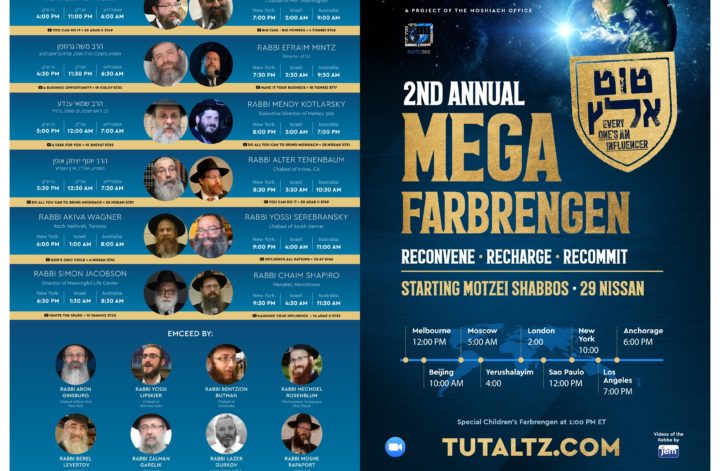
Shabbos is one of the most widely discussed subjects in the Talmud. Aggadic and halachic aspects of Shabbos are scattered throughout just about every tractate in the Talmud, and are fully examined in one dedicated tractate, aptly named Shabbos.
A
The Talmud tells a story about an elderly man rushing to get home before the start of the Shabbos, carrying two twigs of myrtle to enhance the aroma at home. When asked why two twigs, he answered:
- One in honor of the Friday night meal, and one in honor of the Shabbos day feast
- One in honor of the family, and one in honor of the Shabbos guests
- One to mark the start of Shabbos and one for the end
- One to remind himself that we are commanded both to remember Shabbos, Zachor (Exodus), and to keep Shabbos, Shamor (Deuteronomy) as expressed in the Ten Commandments
B
In one of the rare instances that the Talmud offers culinary advice, it describes the foods to be served in honor of the Shabbos. Among them are:
- Chicken and braided challah
- Meat and mustard
- Fish and garlic
- Pumpkins and cucumbers
C
The Talmud advises us of certain behaviors that can lead to the desecration of the Shabbos, such as:
- Forgetting to prepare for Shabbos
- Not learning the laws of Shabbos
- Instilling extra fear in one’s household
- Praying without genuine devotion
D
During the Roman occupation of the Holy Land after the destruction of the Second Temple, the Roman Empire issued decrees preventing Jews from keeping the Shabbos. The sage Rabbi Reuvein ben Istrubly was sent in the guise of a gentile to convince the government that it would be in their best interest to rescind the decree and allow the Jews to rest on Shabbos. He argued that:
- Freedom of religion would make the Jews more cooperative
- Lowering their production output would leave the Jews poorer and thus weaker
- Resting one day is better for the environment
- It would make them more despised by the Roman working class
E
Conducting business transactions is prohibited on Shabbos even through a non-Jewish proxy. But the Talmud speaks of one business transaction that is explicitly permitted on Shabbos through a non-Jewish proxy:
- Buying a house in the Holy Land
- Selling chametz on the eve of Passover
- Selling an aliyah in shul
- Buying food to honor the Shabbos
ANSWER KEY:
A4 (Shabbos 32b)
B3 (Shabbos 118b)
C3 (Gittin 6b)
D2 (Me’ila 17a)
E1 (Gittin 8b)




